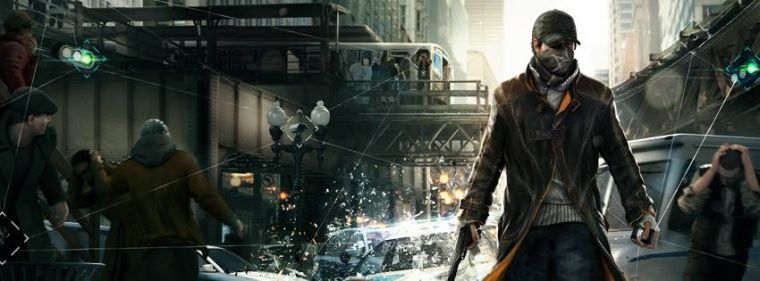‘Watch Dogs’ not hype-defying, but satisfies on some level
July 8, 2014
“Watch Dogs”
Developer: Ubisoft Montreal
Released: May 27
Available on: Xbox One, PlayStation 4, Microsoft Windows, Xbox 360, PlayStation 3 and Wii U
Grade: B-
The Chicago Cubs are ahead in the bottom of the eighth. Aiden Pearce, vigilante hacker, lurks beneath the field and beats Maurice Vega senselessly with his police baton. Vega’s blood seeps onto the floor as Pearce interrogates him but there’s no sympathy to be found here — Vega is the gunman who accidentally killed Pearce’s niece, Lena, 11 months prior, after Pearce’s identity was discovered following a bank heist.
So begins the forgettable revenge plot of Ubisoft’s “Watch Dogs,” which manages to pull off a lot more than its strange blend of “Assassin’s Creed” and “Grand Theft Auto” mechanics may suggest.
Since 2013’s Electronic Entertainment Expo, “Watch Dogs” was the most highly anticipated game of the year. This third-person, open world hacking game set in a fictionalized version of Chicago had the potential to critique technological dependence, but ultimately didn’t break new ground in the conversation.
This version of Chicago is governed by the ctOS, a “central Operating System” that contains information on every citizen, monitors every corner with security cameras and maintains roads, electricity and virtually every function of human existence via smartphones and the Internet.
Pearce’s background as a thief, getaway driver and lawless thug grays the character and his revenge motives considerably. The game is played almost exclusively by hacking into objects from Pearce’s smartphone through an app called the “Profiler.” This allows him to steal bank account information from people, alter traffic signals to cause accidents, send fake text messages to distract guards and steal an unfathomable number of cars in order to flee from the police. “Watch Dogs” largely borrows its open world, driving, mission variety and atmosphere from the immensely popular “Grand Theft Auto” series — only exchanging wit, satire and humor for melodrama.
Similarly derivative, the on-foot gameplay draws from Ubisoft’s “Assassin’s Creed.” Pearce typically maneuvers at a jog, but holding down certain buttons on the controller causes him to “free run.” The running and vaulting animations almost perfectly mimic the famous assassins of Ubisoft’s sister franchise. The minimap also strongly mirrors those from “Assassin’s Creed,” which may cause some confusion when scanning for a haystack to hide in.
All of this ultimately adds up to a familiar-feeling game in a startlingly new locale.
Graphic infidelities, such as cars that disappear when driven into water and getting stuck inside of buildings where one shouldn’t be able to go, lead to a lackluster overall presentation but the novelty of hacking in the game makes up for it.
Pearce gains skill points that can be used to unlock new hacking tools or crafting options, such as jam comms, which disrupt police or gang communications. Some missions can be completed nonviolently by utilizing security camera hacks to their fullest but others require Pearce to go full Rambo.
In the game, there is some semblance of a system of morality in which Pearce’s actions affect his “Reputation” bar and determine how the Chicago populace will react to his presence. Tracking down and beating up criminals earns him recognition as a protector and vigilante for justice, but mowing down innocents behind the wheel of a stolen car does the opposite. In order to face less police resistance, it is important to maintain Pearce’s “protector” status.
Though “Watch Dogs” doesn’t have medium-defying plotlines or mechanics, its expansive world provides plenty of room to explore.
It’s only slightly creepy that everyone’s name, fetishes, idiosyncrasies and bank accounts are at your fingertips. “Watch Dogs” and Pearce are slight dramatizations of our current society — the level of centralized control in the game might not be so far-fetched in real life.



